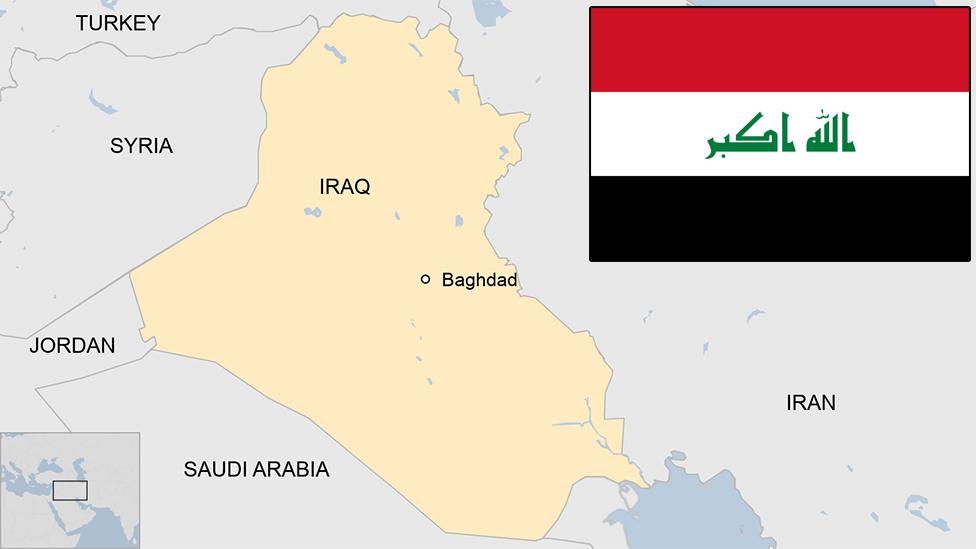IS conflict: Baghdad bombings death toll rises to 70
- Published
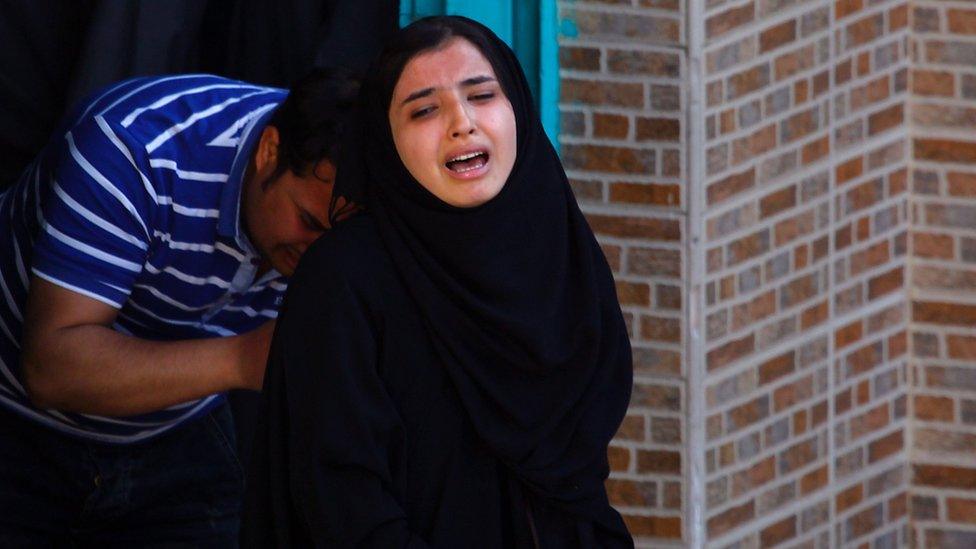
The attack in Sadr City was the deadliest in Baghdad so far this year
The death toll from Sunday's twin suicide bomb attack in Baghdad by Islamic State (IS) militants has risen to at least 70, Iraqi officials say.
Several of those critically wounded when the bombers targeted a busy market in the Shia district of Sadr City died overnight, officials said.
More than 110 others reportedly remain in hospital, while five are missing.
Visiting the scene of the bombings, Iraqi Prime Minister Haider al-Abadi denounced the attackers as "cowardly".
He vowed that their targeting of "defenceless citizens" would not deter Iraqi government forces from seeking to defeat IS, a Sunni jihadist group that controls large parts of the country's north and west.
The UN special envoy to Iraq, Jan Kubis, said the "particularly vicious and cowardly terrorist attack" was "clearly aimed at inflaming sectarian strife".
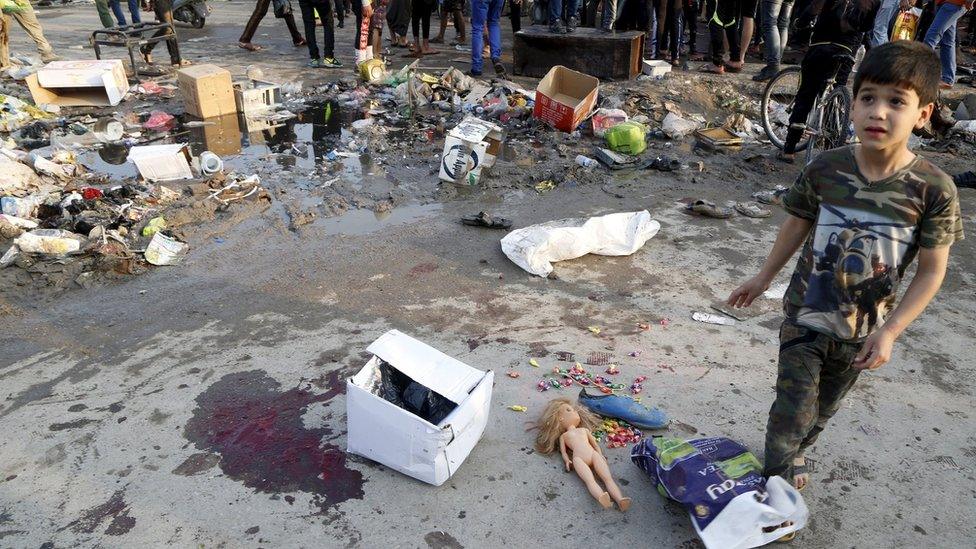
The UN special envoy to Iraq said the attack was clearly aimed at inflaming sectarian strife
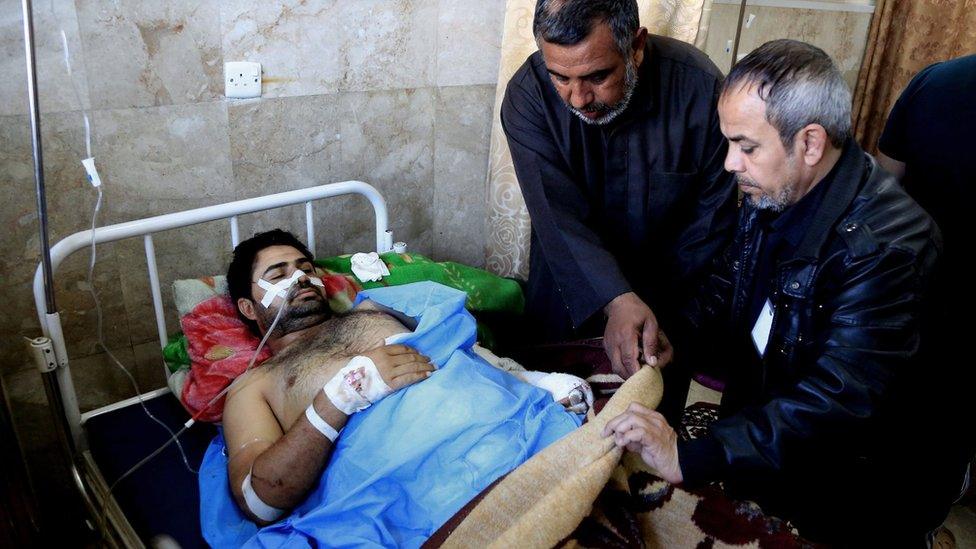
There are fears that IS will step up its attacks in the Iraqi capital after setbacks elsewhere
IS said it would continue to target Shia Muslims, whom it considers heretics.
Officials said that in Sunday's attack, the first bomber blew himself up in the crowded Mredi market in Sadr City. As a crowd and emergency personnel gathered at the site, the second bomber struck.
On Thursday, a Shia mosque in Baghdad was targeted by two suicide bombers, killing 15 people.
With IS suffering recent setbacks elsewhere in the country, there are fears that the group will step up its attacks in the capital, reports BBC defence correspondent Jonathan Beale.
Earlier on Sunday, IS militants launched an assault in the western suburb of Abu Ghraib, which is about 18 miles (29km) from central Baghdad and is close to the international airport.
Iraqi security and Shia-dominated paramilitary forces suffered casualties, but said they killed 20 attackers and were swiftly able to secure the area.
- Published25 February 2016
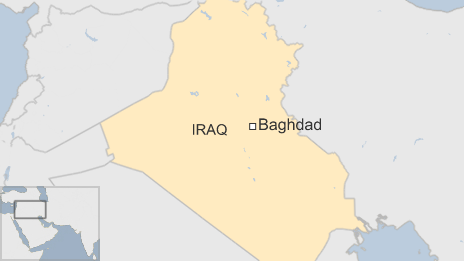
- Published13 September 2023
